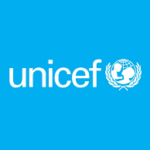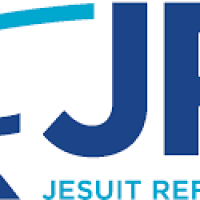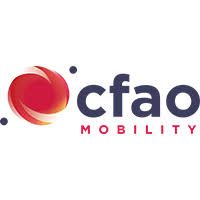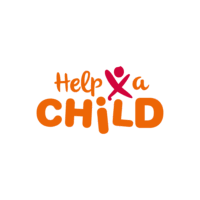|
Globally, people with disabilities are disproportionately impacted by poverty, mainly due to exclusion from work and other livelihood activities (indirect costs) and disability related direct costs that are required for participation and functioning – such as for rehabilitation, personal assistance, and assistive devices. The combined effects of direct and indirect costs of disability mean that people with disabilities have higher expenditure needs than those without. Trite to say, without accounting for these costs, the impact of disability on socioeconomic outcomes will be significantly underestimated. In particular, these costs vary with the type and extent of disability and if social protection programs are not informed by such evidence, they will not be structured in a way that promotes equal participation and protection from poverty.
It is against this background that UNICEF, seeks to engage the services of a highly experienced local expert to undertake a detailed analysis and produce a report on the costs incurred by people with various disabilities in Namibia. The Report will be used for advocacy by stakeholders, including government, UNICEF and partners, to influence resources flows towards a more disability inclusive society. Background The Government of Namibia is committed to implementing the UN Convention on the Rights of Persons with Disabilities (UNCRPD), which it signed and ratified on 4 December 2007. The Convention promotes and protects the rights of persons with disabilities and indulges State Parties to put in place measures that ensure that all persons with disabilities enjoy all human rights on an equal basis with others. Equally, Namibia ratified the Convention on the Rights of the Child (CRC), which promotes the rights of children with disabilities, including mental and physical disabilities. The Government is committed to create an environment where persons with disabilities, especially children and women, are able to enjoy equal access to early childhood development and education programmes and equality of access to other basic and essential services as a right. In addition, Namibia’s Constitution explicitly recognizes the inalienable human rights and freedoms of all its citizens. Article 8 focuses on respect for human dignity and states that ‘the dignity of all persons shall be inviolable’. Furthermore, Namibia has developed national policies and legislation related to disability, including the National Policy on Disability of 2007, the National Disability Council Act, Act (Act no. 26 of 2004), the Sector Policy on Inclusive Education of 2013, and the Mental Health Act. In particular, the National Disability Council Act makes provision for an advisory body to be established, mandated to provide strategic oversight on the implementation of the National Disability Policy, the Continental Plan of Action for the African Decade of Persons with Disabilities and the UNCRPD. It also has responsibility for commenting on any future legislation that has any direct and indirect impact on disability issues. The Act mandates the Council to consult with organisations of persons with disabilities regarding policies and practices impacting the rights of persons with disabilities and to monitor progress on the implementation of programmes. The Child Care and Protection Act 2025, (Act No. 3 of 2025) and the Basic Education Act 2020, (Act No. 3 of 2020) highlight the importance of addressing the needs of children with disabilities to benefit from disability grants, education, safety and protection. The Government of the Republic of Namibia is committed to creating an environment where people with disabilities can enjoy equal access to basic and essential services as a right. As such there are various programmes for people with disabilities, including in health, education and social protection. Government expenditure towards disability inclusion has been increasing, albeit remaining below 0.4% of GDP[1], whilst support towards people with disabilities has been mainly consumptive, and insufficient to cover additional costs of disability and to pull people with disabilities out of poverty. Equally, whilst the main social protection scheme, the disability grant has been significantly increased in recent years. an equal monthly amount of N$1,400 per person, is paid out, irrespective of the type and scale of disability. Whilst it is acknowledged that people and children with disabilities need more resources than those without disabilities, to cover the additional spending and other forms of support and accommodations to overcome the barriers to access and participation, there has not been any attempt to assess and quantify such additional costs and support needs, which is the scope of this assignment. These additional costs may include specialized equipment, assistive devices, home and school modifications, personal assistance services, and healthcare, leaving less available for other essential needs like housing, food, and clothing. The Ministry of Education, Arts and Culture allocates additional financial resources to directly benefit schools where learners with disabilities are enrolled. However, it is not clear how these funds are utilized to benefit the individual learner needs and whether they are contributing to positive learning outcomes. |
How can you make a difference?
| Scope of Work:
The Namibia 2011 Population and Housing Census estimated that there were between 85,000 and 100,000 persons with disabilities, representing 5% of the total population. However, according to WHO global estimates, the number could be as high as 15%. The actual number of persons and children with disabilities is expected to be higher, following the adoption and use of the Washington Group of Questions in the last round of the 2023 National Population and Housing Census.
These people experience significant obstacles to access and participation, on account of addition expenditure needs, yet they tend to earn less income due to barriers in employment and opportunity costs incurred by family members providing support. Together, those additional expenses and forgone income constitute the disability related costs which prevent them from seizing economic opportunities and achieving a similar standard of living and participation.
In view of the foregoing, the Consultant is expected to:
Objectives and expected results: The main objective of the Assignment is to:
|
To qualify as an advocate for every child you will have…
| Knowledge/Expertise/Skills required: |
Work Experience
Competency Profile
|











